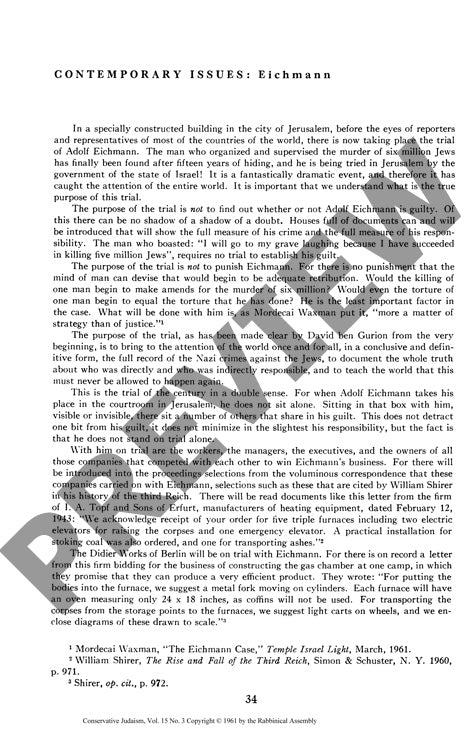Contemporary Issues Eichmann
Couldn't load pickup availability
Adolf Eichmann's 1961 trial in Jerusalem transcended the prosecution of a single Nazi bureaucrat to become civilization's referendum on moral responsibility in the face of genocide. While Eichmann's direct guilt was already extensively documented, the trial's deeper purpose emerged as a comprehensive accounting of how modern institutions and societies enabled the Holocaust through action and inaction alike. Drawing on historical records, corporate correspondence from concentration camp suppliers, and testimony from complicit parties, this analysis reveals an extensive network of responsibility extending far beyond Eichmann himself - implicating German businesses, religious authorities, government officials, and passive societal bystanders. The trial ultimately served as a symbolic judgment of twentieth-century civilization's moral failures, challenging relativistic philosophies and institutional cowardice that allowed systematic murder to proceed. Jerusalem's selection as the venue carried profound meaning, positioning the proceedings as humanity's critical opportunity to confront essential truths about collective accountability, our shared vulnerability, and the moral imperative to actively resist evil. The enduring lessons of the trial illuminate fundamental questions about how civilized society must evolve to prevent future genocides.

More Information
-
Physical Description
-
Publication Information
Published 1961
ISBN
-
Publication Credits
Jack Reimer

